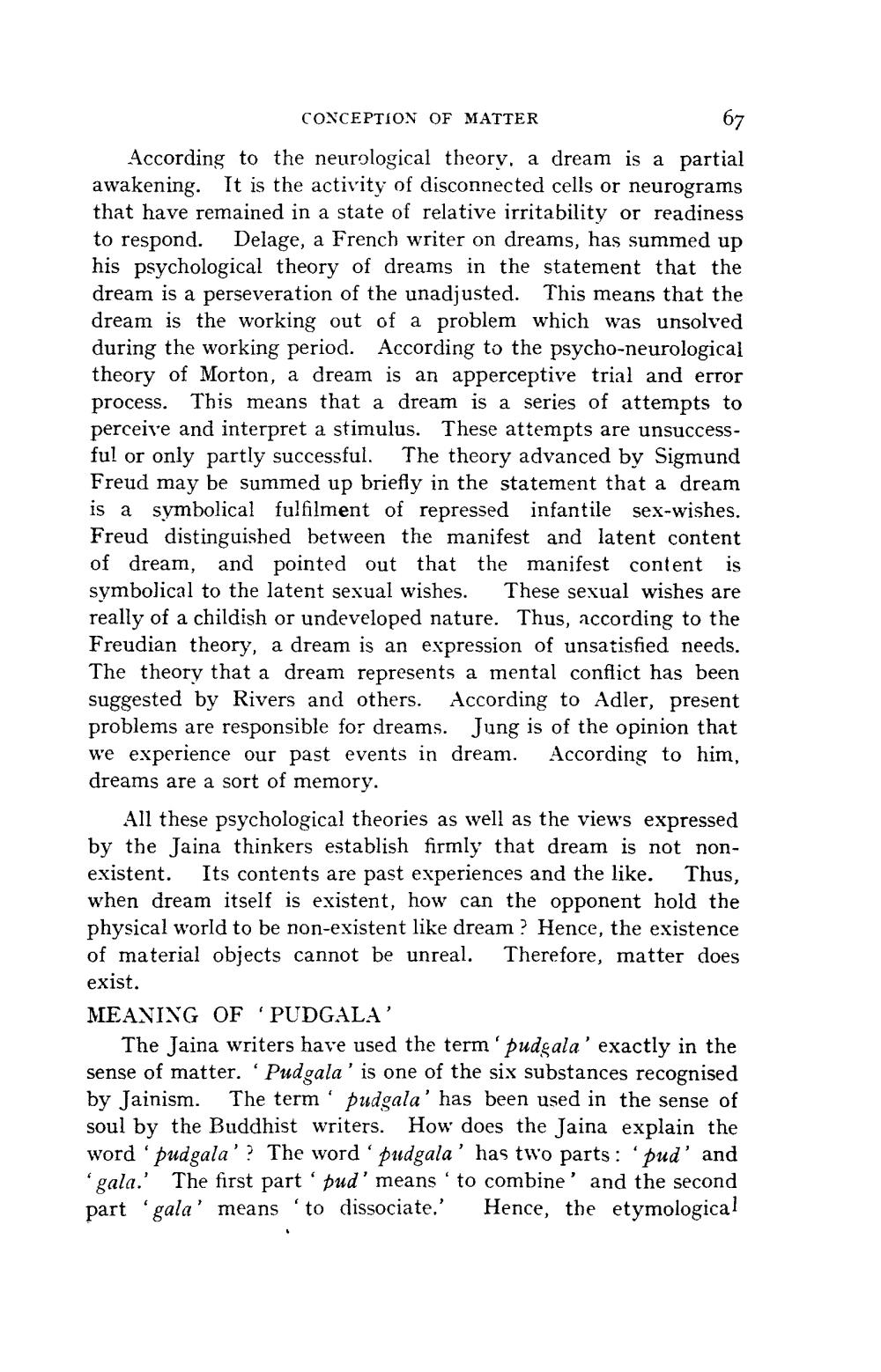________________
CONCEPTION OF MATTER
67
According to the neurological theory, a dream is a partial awakening. It is the activity of disconnected cells or neurograms that have remained in a state of relative irritability or readiness to respond. Delage, a French writer on dreams, has summed up his psychological theory of dreams in the statement that the dream is a perseveration of the unadjusted. This means that the dream is the working out of a problem which was unsolved during the working period. According to the psycho-neurological theory of Morton, a dream is an apperceptive trial and error process. This means that a dream is a series of attempts to perceive and interpret a stimulus. These attempts are unsuccessful or only partly successful. The theory advanced by Sigm Freud may be summed up briefly in the statement that a dream is a symbolical fulfilment of repressed infantile sex-wishes. Freud distinguished between the manifest and latent content of dream, and pointed out that the manifest content is symbolical to the latent sexual wishes. These sexual wishes are really of a childish or undeveloped nature. Thus, according to the Freudian theory, a dream is an expression of unsatisfied needs. The theory that a dream represents a mental conflict has been suggested by Rivers and others. According to Adler, present problems are responsible for dreams. Jung is of the opinion that We experience our past events in dream. According to him, dreams are a sort of memory.
All these psychological theories as well as the views expressed by the Jaina thinkers establish firmly that dream is not nonexistent. Its contents are past experiences and the like. Thus, when dream itself is existent, how can the opponent hold the physical world to be non-existent like dream? Hence, the existence of material objects cannot be unreal. Therefore, matter does exist. MEANING OF PUDGALA'
The Jaina writers have used the term 'pudgala'exactly in the sense of matter. ' Pudgala' is one of the six substances recognised by Jainism. The term pudgala' has been used in the sense of soul by the Buddhist writers. How does the Jaina explain the word 'pudgala'? The word pudgala' has two parts: 'pud' and 'gala. The first part 'pud' means 'to combine' and the second part 'gala' means 'to dissociate. Hence, the etymological




